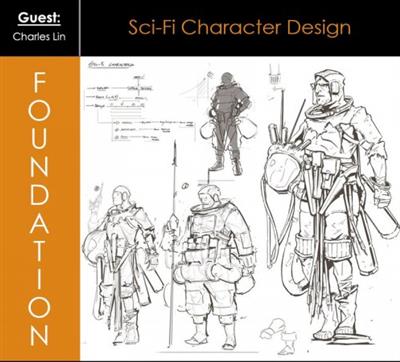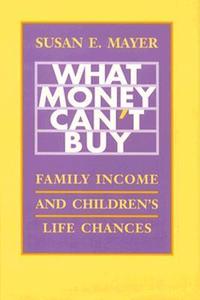
Foundation Patreon - Sci-Fi Character Design with Charles Lin
Genre: eLearning | Language: English
Foundation Patreon: Foundation Sketching - Architectural Design Part 2 : Ideation with Charles Lin

Design a Gouache Pattern In Photoshop: From Paint Brush to Digital Patterns!
Genre: eLearning | Language: English
Hello all my favorite students and welcome to my quick and easy mini class on how to paint out and design you own collage butterflies to transforming them into a basic pattern in Photoshop!

CreativeLive - Creating A Fine Art Series by Brooke Shaden
Genre: eLearning | Language: English
Creating a fine art body of work can be daunting when you consider that a great series has innovative ideas, cohesive editing, and an undeniable connection to an audience. During this class, Brooke will walk through the entire process of creating a fine art series, from conceptualization, shooting, and editing to branding and pricing. The success of a body of work comes from the artist's ability to go beyond the connection to an audience; it must land in the heart of the viewer and then instill a call to action within them. Brooke will lead you through not only how to make your work relatable, but how to take that extra step to become unforgettable, and ultimately, sellable.

Basics of Facebook Advertising & Facebook Marketing: Crash Course For Beginners
Genre: eLearning | Language: English
Learn All The Essentials of Facebook Advertising & Facebook Marketing Quickly. This is a Crash Course on how to run Facebook Ads & Instagram Ads profitably with hands on guidance. It is Jam Packed with strategies from Creating your first Campaign for Facebook Advertising to Scaling a Business online. It is made for absolute Beginners so it is very easy to understand and then implement everything to your own Facebook Ads.

August Dering - Black & White Photography Prints Quickstart
Genre: eLearning | Language: English
Learn how to digitally print museum-quality black & white photos like a darkroom master.

5 Steps to Find Your Photography Style & Develop a Visual Language
Genre: eLearning | Language: English
In this one and a half hour class you will join me to find your own visual language! Not only will we create a mood board, challenge ourselves and find our color palette, in the end we will have 3 brand new images in our visionary style.

Your Guide to Forest Bathing: Experience the Healing Power of Nature, Expanded Edition by M. Amos Clifford
English | August 1st, 2021 | ISBN: 1590035135 | 208 pages | True EPUB | 1.53 MB
The bestselling guide to forest bathing with a new section of hands-on forest bathing practices and space for journal entries and reflections.

YES YOU CAN: Technical Ways To Drop 100 Pounds In 41 Days, Lose Weight Effortlessly by LISA PENS
English | 2021 | ISBN: N/A | ASIN: B092LH1WNC | 141 pages | PDF | 1.12 Mb
Losing weight isn't an easy process, no matter how big or small the goal.
White Tigress Green Dragon Taoist Sexual Secrets for Youthful Restoration and Spiritual Illumination

White Tigress Green Dragon: Taoist Sexual Secrets for Youthful Restoration and Spiritual Illumination By Hsi Lai
2015 | 178 Pages | ISBN: 1517341086 | EPUB | 2 MB
The modern perspective on sexuality is almost exclusively focused on procreational and recreational sex. Little attention has been given to the ancient Asian perspectives on the more profound restorative and transformative (spiritual) benefits of sexuality. This challenging material will definitely bring about a rethinking of sexual purpose and conduct."White Tigress" refers to a female who follows the natural workings and forces of her sexuality to achieve beauty, youthfulness, longevity, and immortality. Her sexual practices all derive from teachings passed down through various consorts and female Taoist nuns and immortalesses."Green Dragon" refers to the male surrogate sexual partners of a White Tigress, who provide her with heightened sexual energy and passion. A Green Dragon can also be a co-cultivator in a Tigress's practice, helping her engage in the deeper transformational practices so that they both can achieve restoration and illumination of body and spirit.The White Tigress and Green Dragon sexual-spiritual practices and philosophy revitalize sexual passion and compassion, demonstrating that there is much to learn about sexual energy and how it can greatly benefit the body and mind.

What Money Can't Buy: Family Income and Children's Life Chances By Susan E. Mayer
1997 | 230 Pages | ISBN: 0674587332 | PDF | 3 MB
"Children from poor families generally do a lot worse than children from affluent families. They are more likely to develop behavioural problems, to score lower on standard tests, and to become adults in need of public assistance. This book asks whether income directly affects children's life chances, or if the factors that cause parents to have a low income also impede their children's life chances. The question of causation is explored, comparing the value of income from different sources, to determine if the value of a dollar from welfare is as high as the value of a dollar from wages. Parents' income after an event, such as teenage childbearing, is also investigated in order to establish whether it can predict that event, if so this suggests that income is a proxy for unmeasured characteristics that affect both income and the event. The author also compares children living in states that pay high welfare benefits to those with low benefits.""Children from poor families generally do a lot worse than children from affluent families. They are more likely to develop behavior problems, to score lower on standardized tests, and to become adults in need of public assistance.Susan Mayer asks whether income directly affects children's life chances, as many experts believe, or if the factors that cause parents to have low incomes also impede their children's life chances. She explores the question of causation with remarkable ingenuity. First, she compares the value of income from different sources to determine, for instance, if a dollar from welfare is as valuable as a dollar from wages. She then investigates whether parents' income after an event, such as teenage childbearing, can predict that event. If it can, this suggests that income is a proxy for unmeasured characteristics that affect both income and the event. Next she compares children living in states that pay high welfare benefits with children living in states with low benefits. Finally, she examines whether national income trends have the expected impact on children. Regardless of the research technique, the author finds that the effect of income on children's outcomes is smaller than many experts have thought.Mayer then shows that the things families purchase as their income increases, such as cars and restaurant meals, seldom help children succeed. On the other hand, many of the things that do benefit children, such as books and educational outings, cost so little that their consumption depends on taste rather than income. Money alone, Mayer concludes, does not buy either the material or the psychological well-being that children require to succeed. ""No social scientist believes that income is the sole determinant of how children turn out, but most believe that parental income has an important influence on children, and some believe it is the single most important influence on children's life chances. Indeed, many argue that other factors that increase the risk of failure among children, such as growing up in a single-parent family, are hazardous mainly because they decrease parental income. When I first began to write this book, I too believed this. At one time I was a young single mother without much money. I know what it is like not to be able to afford a pair of jeans or a birthday cake for your child, to have to borrow money to pay a doctor's bill, and to worry about a child left home alone after school because there is no money for child care. To paraphrase Sophie Tucker,I have been poor and I have been not so poor and not so poor is better. But my belief in the importance of income to children's well-being was not based on personal experiences alone; it was also based on a large body of social science research.Although the empirical studies with which I was familiar did not agree on how much influence parents' income had on any particular measure of children's well-being, none suggested that its effect was negative, and the best evidence suggested that it was quite important for many outcomes. My own preliminary research also showed that parental income had large effect on teenage childbearing, dropping out of high school, and children's eventual educational attainment, even after I held constant characteristics such as parents' race, education, and age.Empirical evidence also suggested that the effect of income on children's outcomes was usually what statisticians call "nonlinear," meaning that an extra dollar would help poor children more than it would help rich children. If this were the case, transferring income from the rich to the poor would usually help poor children more than it would hurt rich children.I recognized, of course, that many Americans discounted the importance of income, arguing that how children turn out largely depends on their parents' moral character, social skills, intelligence, and other characteristics. If this were true, increasing the income of low-income families might not help their children. But the evidence I had seemed to show that income had a greater effect on adults' character than character had on income. Furthermore, whereas most Americans now believe that income transfers discourage work and marriage, my reading of the research convinced me that such effects were quite small. Compared with other ways of helping low-income children, increasing parental income through income transfer, child tax credits, child support payments, and the Earned Income Tax Credit (EITC) seemed like simple, effective, and efficient ways to help more children grow up to be productive, law-abiding citizens.As it turned out, however, the relationship between parental income and children's outcomes is more complicated than I first imagined. In most cases, additional parental income does improve children's chances for success. But parental income is not as important to children's outcomes as many social scientists have thought. This is because the parental characteristics that employers value and are willing to pay for, such as skills, diligence, honesty, good health, and reliability, also improve children's life chances, independent of their effect on parents' income. Children of parents with these attributes do well even when their parents do not have much income.This conclusion flies in the face of the common liberal claim that "the poor are just like everyone else except that they have less money." But this claim has always been a half-truth. Almost noone believes that the average welfare recipient is just like the average CEO or the average schoolteacher. The rich and the poor have far more in common than the rich generally admit, but giving poor parents more cash will not make them just like the well-to-doin all respects. The crucial question, therefore, is whether the things that extra money can buy make a big difference to children. When extra money prevents hunger or homelessness, or when it buys medical care and other necessities, it can make a big difference to children. But in the United States most poor families can meet these basic material needs through a combination of Food Stamps, Medicaid, housing subsidies, government income transfers, and private transfers of cash, goods, and services. Under these circumstances the question is seldom whether money for basic necessities would help children, but usually whether money for goods and services beyond some minimum would significantly increase a child's chances for success.In this book I assess the effect of parental income on young children, teenagers, and young adults. I look at young children's cognitive skills and behavior problems, whether teenagers drop out of high school, whether teenage girls have babies, whether young women become single mothers, the number of years of schooling completed by young adults, young men's wages and earnings, and what I call male "idleness" - the chance that a twenty-four-year-old male who is not in school did no paid work in the previous year....We are likely to repeat the same cycle of policies over the next hundred years unless new information sheds light on the old questions of what money can and cannot buy. Thus this book is about what money can buy for children....None of these strategies would be completely convincing by itself. But all five strategies lead to the conclusion that conventional models overstate the importance of income to children's outcomes. They also show that the effect of income per se on most outcomes is smaller than many researchers have thought."


